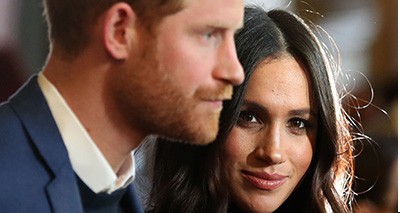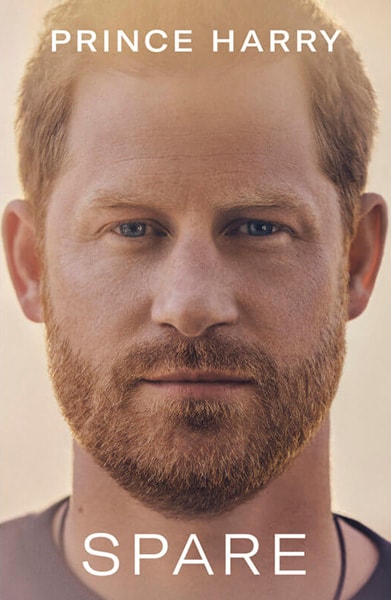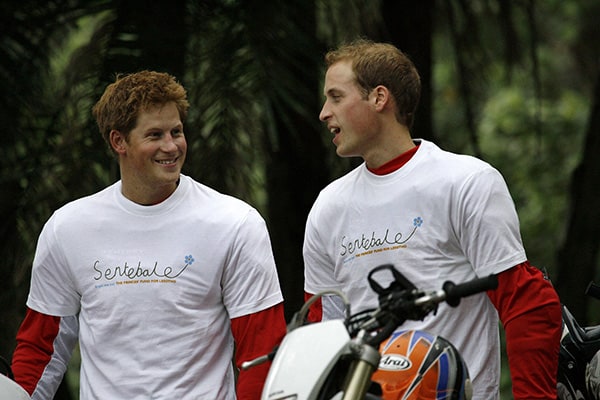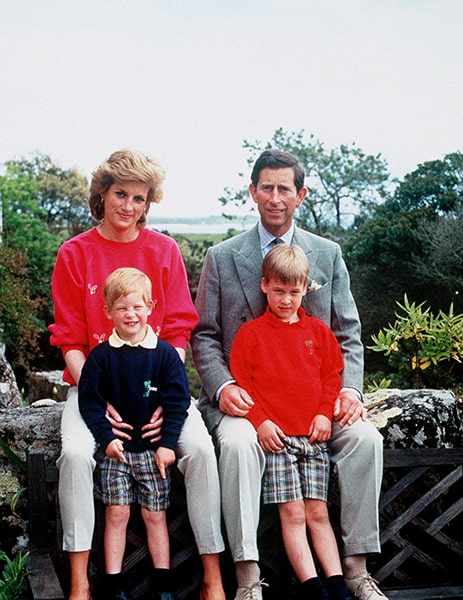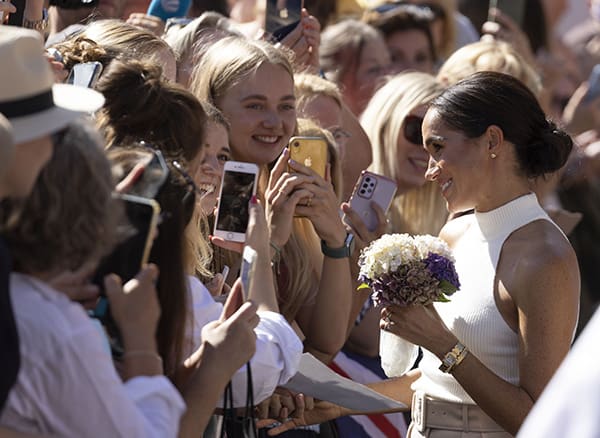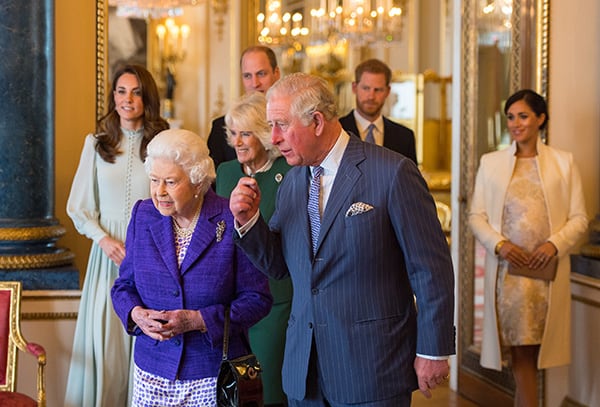Credit Image: © Andrew Milligan/PA Wire via ZUMA Press
Prince Harry, Duke of Sussex, Spare, Random House, 410 pp., $22.40.
This article reading is also available on Substack, where you can subscribe to future readings.
Prince Harry’s new memoir is as awful as you expected it to be. If you’ve already formed the impression that Harry is a whining brat and a woke narcissist, you will find much here to confirm that view. Indeed, if anything, he’s worse than you thought.
The title of the book, Spare, refers to the old saying that people with inherited titles are obliged to produce “an heir and a spare.” However, being “the spare” rankles Harry, though he claims it’s not because he wanted to be next in line to the throne. “I was the shadow, the support, the Plan B,” he writes early in the book. “I was brought into the world in case something happened to Willy [William, the heir]. I was summoned to provide backup, distraction, diversion and, if necessary, a spare part. Kidney, perhaps. Blood transfusions. Speck of bone marrow. . . . My family had declared me a nullity. The Spare.”
This book is more or less one long list of grievances against the world, frequently interrupted by excruciatingly detailed accounts of seemingly everything that ever happened to this unremarkable young man. It is impossible to parody Harry’s grievances, as many of them are so petty they are already the stuff of comedy. For example, at one point he complains that, when they were children, William’s room was larger than his. It is his brother who appears to be the family member Harry resents most, but “Pa” is also a major target.
Prince William and Prince Harry ahead of the Enduro Africa charity ride in Port Edward, South Africa on October 17, 2008. (Credit Image: © Jerome Delay/PA Wire via ZUMA Press)
The portrait of Charles that emerges is actually positive — but that doesn’t seem to have been Harry’s intention. He reports that sometimes, after dining with his father, he would go upstairs to his room and find a letter from Charles on his pillow, saying how proud he was of something Harry had accomplished. Had my own father done that, I would have been extremely touched, but it’s not good enough for Harry, who wondered “why he hadn’t said this moments ago, while seated directly across from me.” Charles, like the entire family, is reserved — but cold he is not. He addresses Harry as “darling boy” and dotes on him, dispensing wise advice and support that will probably impress most readers — but which is, again, not enough for the “darling boy” himself. One feels for Charles, as one feels for every parent who must deal with a child like this.
Whereas Charles is steeped in family history, Harry has no interest in such things. He recounts an incident in which a schoolmaster scolded him for being unable to answer a basic question about one of his forebears. “I cannot fathom it, Wales,” [his official title is Prince Henry of Wales] said the angry schoolmaster. “We’re talking about your blood relatives — does that mean nothing to you?” “Less than nothing,” Harry replied. It’s a shocking statement, but Prince Thicko (as the British tabloids dubbed him) is too thick to realize how much he has revealed.
He does appear to know something, however, about at least one ancestor, Henry IV, who reigned from 1399 to 1413. Within the first 20 pages, Harry refers to him as “another Prince Harry . . . [my] distant kin. My kindred spirit, some would claim.” You see, Henry IV, Harry tells us, “got himself exiled, then came back and annihilated everything and everyone in sight.” Is this Prince Harry’s own ambition?
For all Harry’s endless talk about the importance of “expressing feelings” and all his tsk-tsking about relatives — such as his grandmother — who wouldn’t let themselves be affectionately pawed and nuzzled, Harry lacks empathy for his living, breathing blood relations. He seems to have no real understanding of the pain and embarrassment he has caused his family — especially the late queen (herein referred to as “Granny”), who was forced to spend a good part of her final months fretting about him.
The queen emerges from these pages as little more than a cipher. Admittedly, she must have been hard to get to know, but Harry seems to have made almost no effort. His brother is usually mentioned only to be criticized or ridiculed. His grandfather Prince Philip is scarcely mentioned at all — though Harry does tell us that he used the Duke of Edinburgh’s funeral as an opportunity to rehearse his grievances, yet again, with Charles and William.
The one person portrayed in glowing terms and who entirely escapes criticism is his mother Princess Diana, who casts a long shadow over this entire tale. In one of the book’s many instances of bad writing, Harry tells us that Diana was indescribably wonderful because she was “light, pure and radiant light, and how can you really describe light?” It is not unusual, of course, for a boy to canonize a mother he lost so early in life — when he was 12.
The Prince and Princess of Wales with sons Prince William, right, and Prince Harry in the Scilly Isles on June 1, 1989. (Credit Image: © PA Wire via ZUMA Press)
What is unusual is holding onto the hope, well into adulthood, that “Mummy” hadn’t really died at all and was just hiding. It’s also not unusual for a child to be traumatized by the death of a parent, especially if the death is violent. Still, what is unusual is Harry’s inability — which he frankly admits — to get beyond the tragedy and get on with his life.
The one thing about Harry that makes me hesitant completely to condemn him is his unblemished military record, especially his tours of duty in Afghanistan. Yet even here it is difficult not to find fault, since his own account of his time in the British Army is a weird mixture of macho posturing and mother obsession. Describing the rigors of boot camp, Harry tells us, “They can’t break me, I thought. Is it, I wondered, because I’m already broken?” (i.e., broken by the loss of “Mummy”). Later, when he is being taught how to fly a helicopter, his instructor compliments him on his fearlessness:
You’re not terribly concerned, if I may say so, Lieutenant Wales, with dying.
That’s true [Harry replies].
I explained that I hadn’t been afraid of death since the age of twelve.
He nodded once. He got it. We moved on.
As if this weren’t enough, Harry tells us later that “my war didn’t begin in Afghanistan. It began in August 1997” (when Mummy died). Then there is the small matter of what he says about killing the Taliban, which has received a good deal of criticism both from the press and from military brass. Harry recounts the day that he killed 25 fighters (from a helicopter) and how he “didn’t think of those twenty-five as people. You can’t really harm people if you don’t think of them as people. They were chess pieces removed from the board.” Harry wants us to know that, contrary to appearances, he is no snowflake but a cold and fearless killer. However, he also doesn’t want us to forget that while those around him were having limbs and testicles blown off, he was suffering on the inside.
Spare gets much more interesting when Meghan Markle appears on the scene, and the book becomes a page turner. It is clear that Harry is head over heels in love with this woman — and, like many men in love, his perceptions of her are completely at odds with those of others. Meghan, he reports, didn’t seem to know much of anything about him. Indeed, she has claimed in interviews that she “didn’t really know” what his family did (!). These claims strain credulity — and have now been thoroughly debunked. Say what you want to about Meghan, she’s no dummy. She perceived that the less she seemed to know about Harry, and the less she seemed to care about his being royal, the more he would find her appealing. Wallis Simpson hooked Edward VIII with the same trick.
All goes well between Harry and Meghan — until their first fight. There’s always a first fight in any relationship, but Meghan immediately insists that he go into therapy. “I’ve tried therapy,” he says, but it didn’t work out for him. “Try again,” says Meghan.
Harry had sought therapy in the past to deal with his inability to accept his mother’s death — and thus his inability to mourn for her. He claims not to have cried for Diana, or at least not to have cried enough. The low point of the entire book arguably comes when Harry accedes to Meghan’s wishes and meets with another therapist:
She asked me what I needed. Why are you here?
Look, I said. What I need . . . is to be rid of this heaviness in my chest. I need . . . I need . . .
Yes?
To cry. Please. Help me cry.
When Harry tells his father that he wants to marry Meghan, Charles’s response is not enthusiastic: “Well, darling boy, you know there’s not enough money to go around. . . . I can’t pay for anyone else. I’m already having to pay for your brother and Catherine [Kate].” Harry reacts with incredulity — as did I. One wonders if there were other reasons why Charles reacted by immediately suggesting an impediment to the marriage. Harry reports that his father got on well with Meghan, but of course, his father was trained from birth to be one of the most charming men in the world. In fact, while the royals were, as ever, all smiles on the surface, they had reservations about Meghan. And none of them seems to have had much to do with the fact that she is biracial.
William, Harry, Meghan, and Charles speaking on March 11, 2019 as they attend the Commonwealth Service at Westminster Abbey. (Credit Image: © Richard Pohle/PA Wire via ZUMA Press)
Harry writes:
I’d seen plenty of press reports, sourced to “the Palace,” that some in my family didn’t quite, shall we say, approve of Meg. Didn’t fancy her directness. Didn’t feel altogether comfortable with her strong work ethic. Didn’t even enjoy her occasional questions. What was healthy and natural inquisitiveness they deemed to be impertinence.
In other words, they found her to be pushy and rude. (“Direct” is a common euphemism for “rude” — it’s the preferred term New Yorkers use about themselves.) William finally says to Harry: “Meg’s difficult. She’s rude. She’s abrasive. She’s alienated half the staff.” This conversation ended with William grabbing Harry and knocking him down. After the hardened war hero picked himself up off the floor, he reports that the first thing he did was call his therapist.
William’s assessment of Meghan is particularly convincing given that Meghan’s PR man later made a formal complaint to the palace about her abusive behavior toward staff, calling it “totally unacceptable.” According to Harry, Meghan was all sweetness and light to everyone. He claims that everyone in his family was jealous of her and feared she would outshine them.
When Harry and Meghan’s engagement was announced there was enormous press coverage, which was difficult for the couple. Fascination with Meghan reached near Diana-level proportions, and Harry describes invasions of their privacy that are genuinely shameful. Coverage of Meghan was mostly fawning, but since their departure from royal life the couple have repeatedly claimed she was the victim of continual “racist” attacks in the British press.
In Spare, Harry provides few examples of this. One is a Mail Online headline, “Harry’s girl is (almost) straight outta Compton,” for a story about the grubby, gang-ridden neighborhood of Los Angeles where Meghan’s mother lives. Instead, he generally cites social media attacks — but social media are not “the press.” He mentions a tweet calling Meghan “queen of monkey island,” and comments that such a tweet “had no historical precedent or equivalent.” This is true; people weren’t tweeting in the Edwardian era.
One would think Harry could have taken all of this in stride; he had been subject to constant and intense media scrutiny since he was a zygote. But any reader of Spare will see that Harry has an obsession with the press. This must have a lot to do with how it hounded his mother, but instead of despising and ignoring the rotters, like his father and brother, Harry takes it very personally. A large part of Spare is devoted not to Harry’s life but to coverage of his life. As other reviewers have noted, he seems to remember every negative, inaccurate, or concocted story ever published about him, as well as the names of the reporters and editors.
The rest of the family has been able to live and work in the face of journalistic harassment, so one has to wonder what the trouble is with Harry. The answer is not hard to find. Just as Harry is a typical ungrateful and resentful modern child, so he is also a typical modern narcissist. He cannot simply ignore the press and social media and go on with his life, because what matters to him more than anything is how that life is reflected back to him by others.
If narcissism is heritable, as evidence seems to indicate, Harry probably inherited if from Mummy. Diana was never an innocent victim of the paparazzi: She frequently put herself in situations that invited press scrutiny, and manipulated the media to her own ends, probably also obsessing over every word written about her. And her Garboesque “let me alone” act was mostly just that: an act. It’s not unusual for a boy obsessed with his mother to fall for a woman who resembles her. Certainly, in her narcissism and manipulativeness, Meghan is like Diana.
In response to Harry’s obsession with the press and social media, Charles tells him repeatedly, “Don’t read it, darling boy.” This is wise advice. People who lead this sort of life would go bonkers if they paid attention to everything the press and social media said about them. And bonkers is precisely where Harry seems to go in the last 80 or so pages of Spare. There is a tone of mounting hysteria, with Harry continually obsessing over publicity and making more frequent and increasingly shrill demands that his family “do something.”
Meghan also appears to have been terror-stricken by press intrusions, and by comments posted to social media. At one point, she threatens suicide, which really sends Harry over the edge. He then begins floating the idea that he and Meghan should take an extended break from public life. No one in the family, however, seems to want to discuss this — probably because they see that he has worked himself up into a lather and think that eventually all this will pass. But Harry persists.
Meghan Markle on a walkabout during the Invictus Games in Dusseldorf, Germany. (Credit Image: © Stephen Lock/i-Images via ZUMA Press)
He demands a meeting with his father, but Charles is in Scotland and insists that he has no time to meet with Harry for at least a month. There is not even, apparently, any breakfast, lunch, or dinner at which Charles could have a chat with his son. Harry comes away thinking he’s being given the runaround — which is undoubtedly correct. So, he turns to Granny. At first, the queen seems positively eager to see him, and says she is free all week. On the day of their scheduled meeting, however, a note arrives from a courtier (one Harry particularly despises) informing him that the queen cannot meet with him after all. Incensed, he phones his grandmother and — in a painfully embarrassing scene — confronts the 93-year-old monarch:
Hi, Granny, it’s Harry. Sorry, I must have misunderstood you the other day when you said you didn’t have anything going on today.
Something came up that I wasn’t aware of [she says].
Can I pop in tomorrow then, Granny?
Um. Well. I’m busy all week.
At least, she added, that was what [the villainous courtier] told her . . .
Is he in the room with you, Granny?
No answer.
It seems likely that someone (possibly Charles) got to the Queen and told her that Harry was on the warpath and that it wouldn’t be a good idea to get pulled into his drama. It appears that everyone in the family had reached a point at which they wanted nothing to do with him.
But the problem of Harry and Meghan is one that couldn’t be avoided forever. So, in January 2020, the Queen, the Prince of Wales, William, and Harry sat down for a “summit meeting” at Sandringham House in Norfolk. There, five possibilities were laid out for Harry and Meghan. Harry wanted option three, which would let him and Meghan work for the queen, but only for half the year. But the queen was dead set on option five: the couple would cease to be working royals, lose all financial support, lose the right to publicly use their HRH titles, and lose their security detail. In her view, apparently, you are either all in or all out. To have allowed Harry and Meghan to enjoy all the privileges of being royal while performing their duties only half the year would have been an insult to working royals such as Charles and his sister Anne, who each attended more than 500 public events in 2019. Days later, Harry and Meghan’s security detail is pulled. “They took it all away,” Harry whines. “They made it sound as if there’d been an agreement between us. There was nothing of the sort.”
Duke and Duchess of Sussex joining Queen Elizabeth II and the Prince of Wales, followed by the Duke and Duchess of Cambridge and the Duchess of Cornwall, at a reception at Buckingham Palace on March 5, 2019. (Credit Image: © Dominic Lipinski/PA Wire via ZUMA Press)
What seems to interest everyone the most about Spare are the bits about Harry’s relationship with Meghan, but she doesn’t even appear until the reader has waded through more than 250 pages of some of the most sophomoric and boring prose in recent memory. Predictably, Harry has bought into everything “woke” and there is no shortage of weak-willed virtue signaling throughout the book. He refers to the 1879 Battle of Rorke’s Drift, in which 150 British troops successfully defended their post against several thousand Zulu warriors, as “British mythology.” He describes his nation’s heritage as one of “imperialism, colonialism, nationalism — in short, theft.” There is also much self-flagellation over the infamous incident when Harry wore a “Nazi uniform” to a costume party. He tries to shift the blame to William and Kate, but virtue signals about it all the same. “The shame would never fade,” he writes. “Nor should it.” And he promises us that “I hadn’t known enough about the Nazis, hadn’t taught myself enough, hadn’t asked enough questions of teachers and families and survivors. I had resolved to change that. I couldn’t become the person I hoped to be until I changed that.”
Harry has also thoroughly imbibed the modern notion that manners and traditions are “repressive.” He is a self-hating Brit who thinks he must loosen the proverbial stiff upper lip for the sake of “mental wellness” and let the blubbering begin. Near the end of the book, Harry asks, “When is someone in this family going to break free and live?” Live for what? Harry was given, by accident of birth, the opportunity to live a life in service to something far greater than himself. And, through marriage, Meghan was given that opportunity as well. Both have thrown it away in the name of the usual vacuous modern ideals of “happiness” and “self-actualization.”
Another question: Where will Harry and Meghan go from here? They say that they want to campaign for various fashionable causes. However, the sheer self-importance of Spare makes clear that Harry is unaware that the only reason anybody has ever listened to him is that he is royal. By giving up all royal duties and trying to damage his family and the monarchy, he is doing everything possible to undermine his royal status, as well as the cachet of royalty itself.
The absurd “author bio” in Spare reads: “Prince Harry, the Duke of Sussex, is a husband, father, humanitarian, military veteran, mental wellness advocate, and environmentalist. He resides in Santa Barbara, California, with his family and three dogs.” In short, the prince just wants us to think of him as an ordinary bloke. But if he gets his wish, why would anyone listen to him, when the only interesting thing about is that he is the son of King Charles III?
Harry should go whole hog and renounce all his titles. He can do that if he wants. The fact that he still hangs onto them speaks volumes. The Sussexes want all the glamor of being royal without any of the obligations. Both are getting an awful, well-deserved beating in the British press, and polls show they are now extremely unpopular. Several pundits have called for King Charles to strip Harry of his titles. This is unlikely, because Charles is a kind-hearted man who obviously loves his son.
One genuinely feels for the King when Harry quotes him saying to the bickering brothers, “Please, boys — don’t make my final years a misery.” Harry mentions that his father tried, unsuccessfully, to instill in him a love of Shakespeare. Charles can at least fully understand the words of King Lear, “How sharper than a serpent’s tooth it is to have a thankless child.”
- Post TagsBritain, Featured, Miscegenation
